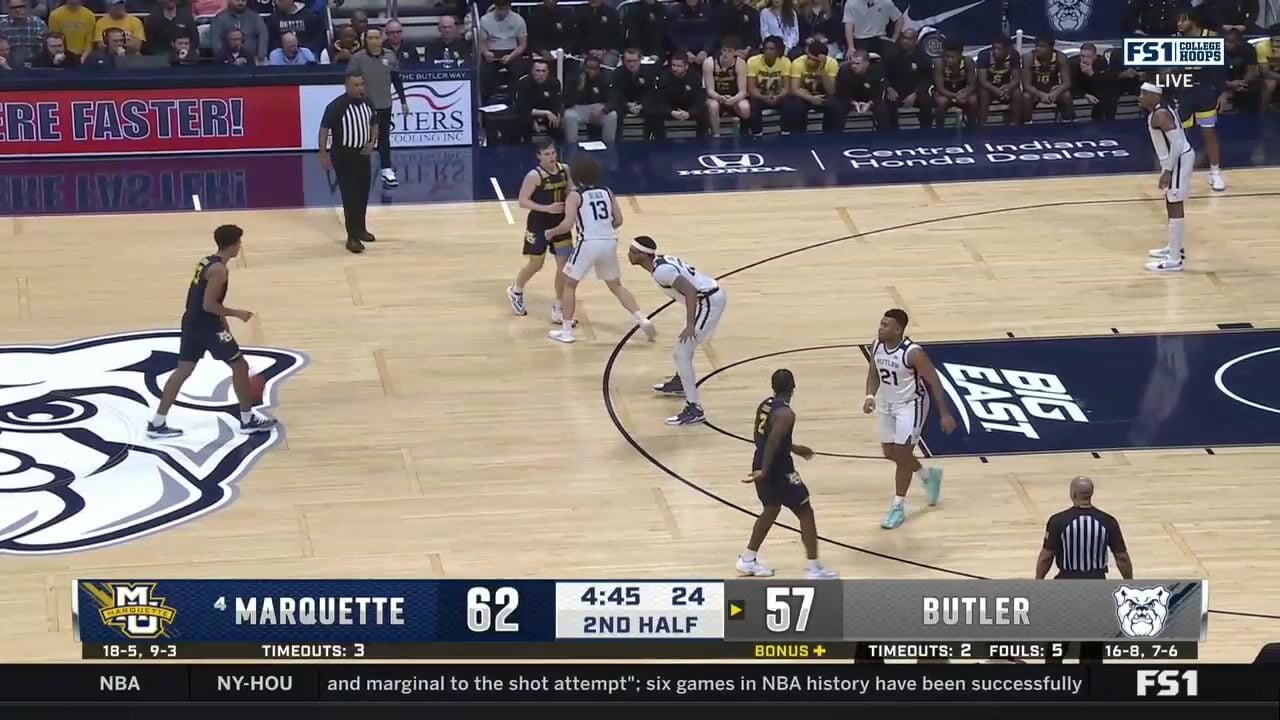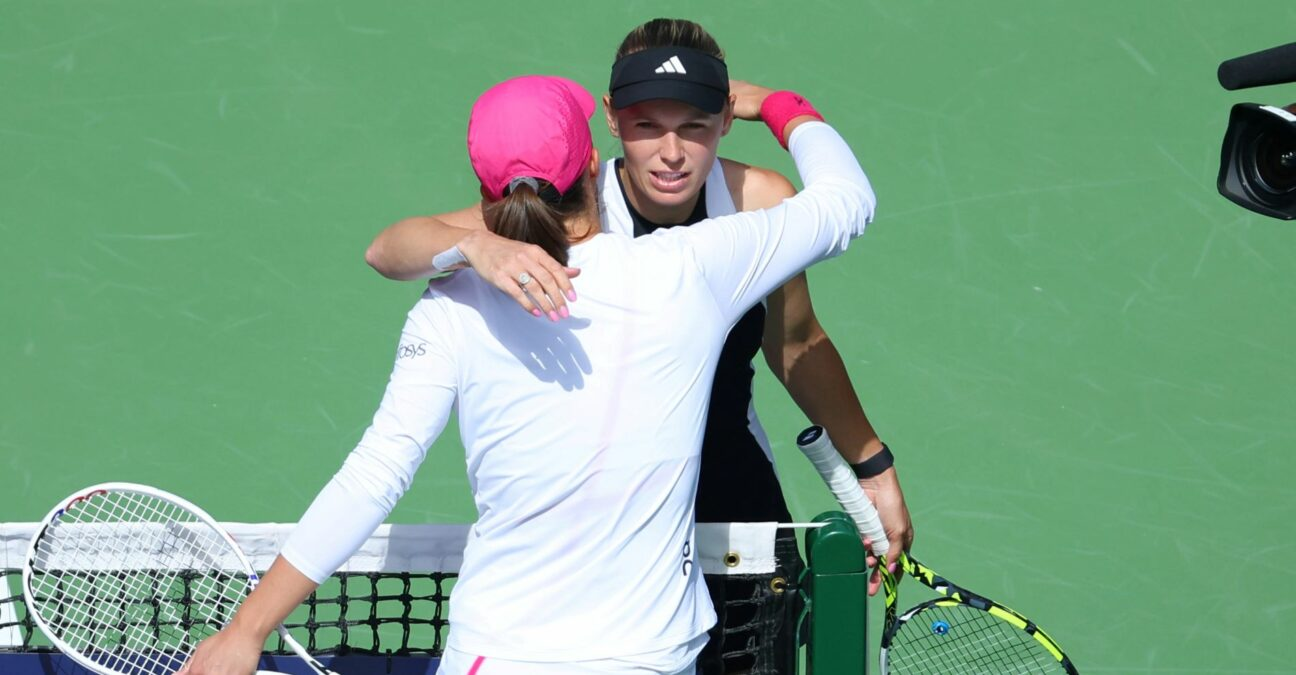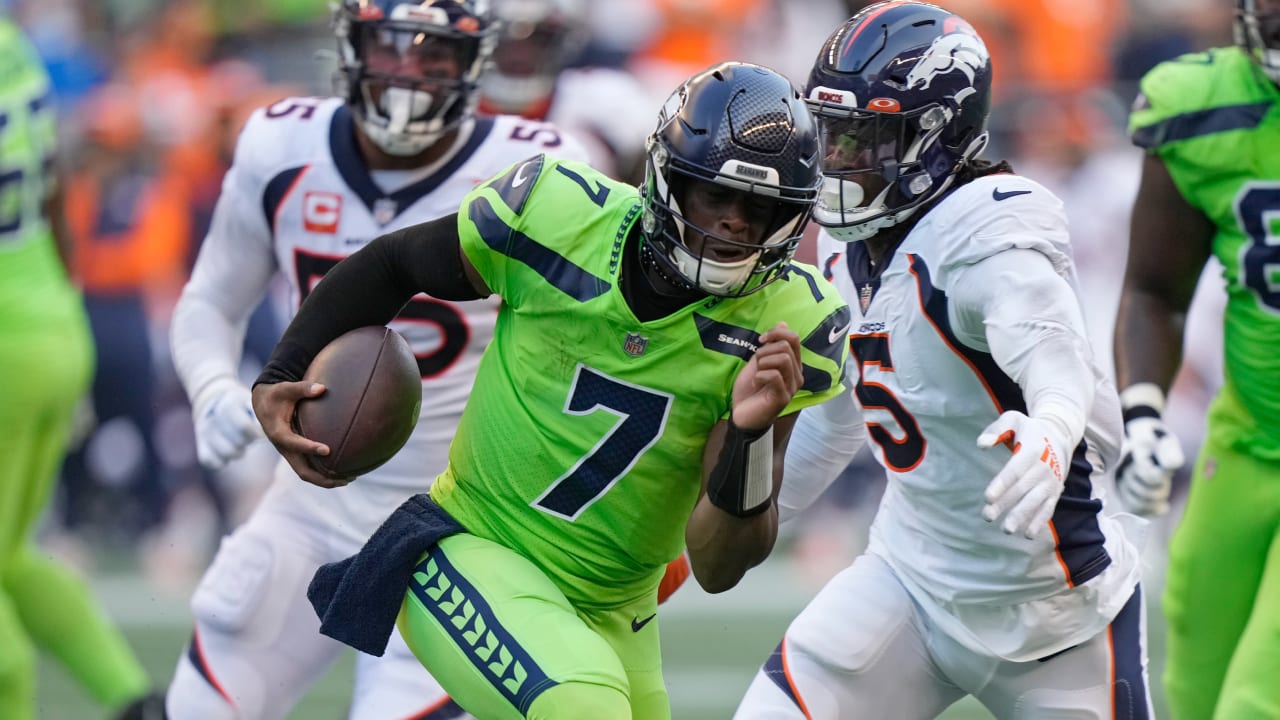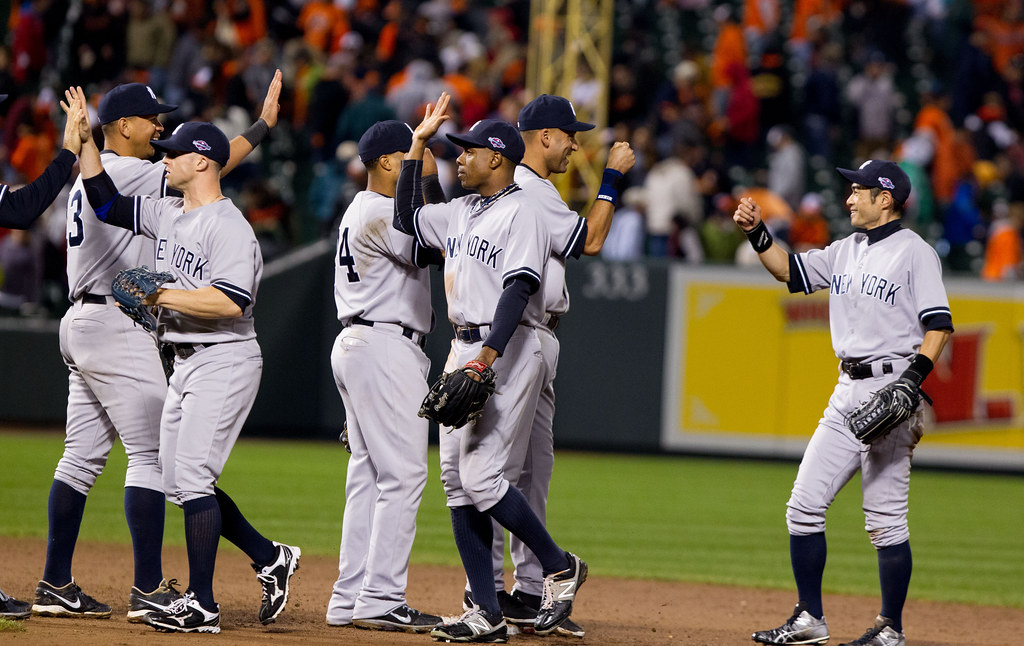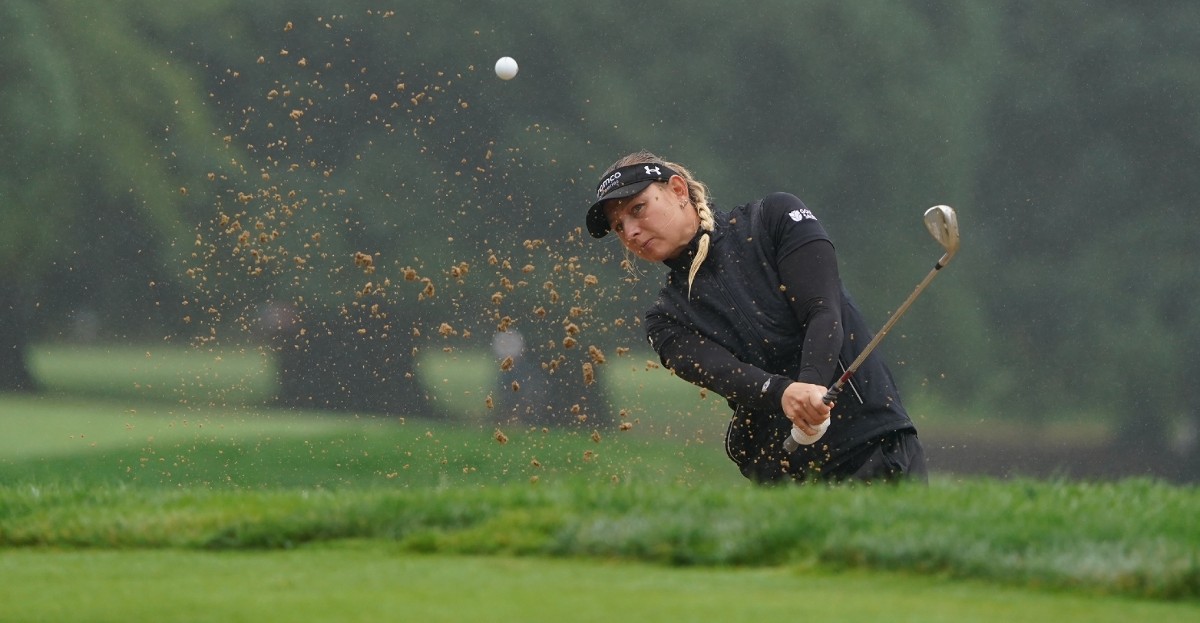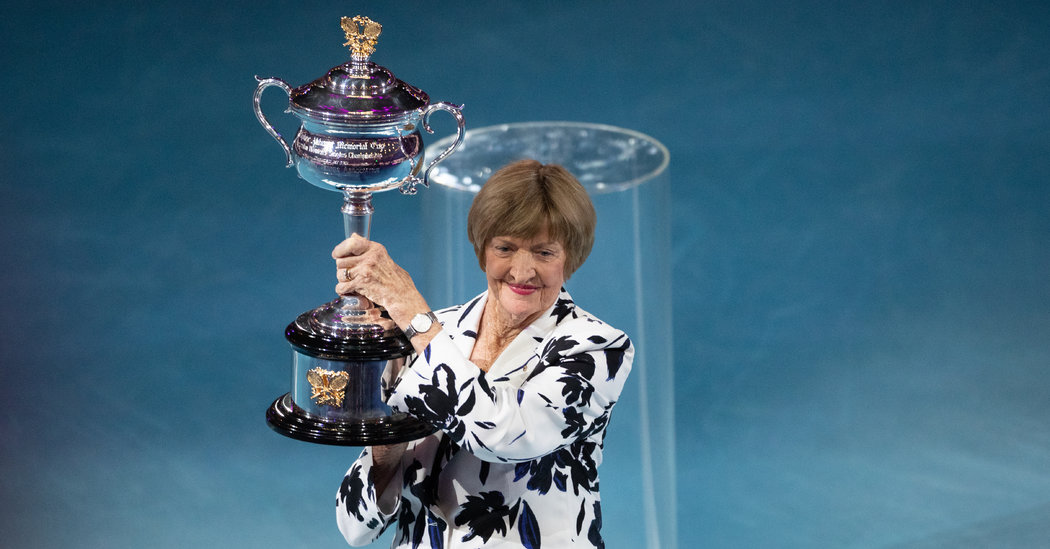
The Australian Open’s Icy Embrace of Margaret Court
MELBOURNE — Margaret Court?
Martina Navratilova had seen and heard enough.
The outspoken tennis great had long opposed the fact that Court, a fellow legend who has become known more for her homophobic comments than her sterling game, had been honored at the Australian Open with a show court stadium bearing her name.
Then, as this year’s two-week tournament entered its final week, tennis officials feted Court once again. This time, they publicly honored her for one of her crowning achievements: the calendar Grand Slam she won 50 years ago, claiming all four majors in 1970.
Against the backdrop of Court’s celebration, an angry Navratilova made her views clearer. The following day, in the moments after she finished an exhibition doubles match at Melbourne Park, she took to the umpire’s chair and addressed the crowd over a microphone. “I’ve been speaking out about an issue for a while now,” said the former world No. 1 and three-time Australian Open singles champion, “and John McEnroe is here to help.”
Suddenly there was McEnroe — another ardent critic of Court. Together they held aloft a banner. “Evonne Goolagong Arena,” it read, a nod to calls for Melbourne Park’s second biggest stadium to be renamed after an uncontroversial and widely beloved Australian great of the women’s game, the winner of three consecutive Australian Opens in the mid-1970s.
The dust-up was uncommon in today’s era of professional tennis, where such outspokenness on contentious social and political issues rarely happens. Tennis Australia — which runs the tournament and governs the game across the continent — clamped down within hours. The organization issued a statement that called out its “high-profile guests” for breaching protocol. “We embrace diversity,” the statement added, “inclusion, and the right for people to have their view, as well as their right to express that view.”
That admonishment — denouncing the protest while also making sure to highlight inclusion — underscored the bind Australian Open organizers have found themselves in at this year’s tournament, one that is becoming increasingly felt throughout the sports world by teams, leagues, hall of fames and especially fans.
How do we treat heroes once they’ve become swaddled in controversy off the field of play?
“These are the kinds of questions we are increasingly having to ask,” said Kenneth Shropshire, a professor and the head of the Global Sport Institute at Arizona State University.
“And what do we do with people who don’t exactly apologize,” Shropshire said. People who “don’t feel they need to change?”
Nobody in tennis disputes Court’s greatness as a player. Her 24 major singles titles remain the record for anyone, male or female. (Serena Williams is next, with 23.) Court’s haul of 64 total majors — singles, doubles, and mixed doubles combined — is likely to stand for good.
But the very mention of her name stirs deep controversy now.
She has long cast homosexuality as a sin and complained of the accepting ways of women’s tennis — a sport that has been relatively hospitable to lesbians such as Navratilova and Court’s prime rival, Billie Jean King.
As Australia moved closer to granting marriage rights to all in 2017, her rhetoric sharpened. She described the push for acceptance of the L.G.B.T.Q. community as the work of the Devil. And she doubled down on her scorn for homosexuality within the sport.
“Tennis is full of lesbians,” she told a radio station in a 2017 interview. “Because even when I was playing there were only a couple there. But those couple that led there took young ones into parties and things.” She continued: “What you get at the top is often what you’ll get right through the sport.”
Despite her intolerant views, Australian tennis officials continue to embrace Court — albeit with icy unease.
They have resisted calls to strip her name from the arena. When Court campaigned to be honored at this year’s tournament in the same way Rod Laver was last year for his 1969 Grand Slam, Tennis Australia went along. It also treaded carefully, making clear that it would merely “recognize, not celebrate” the former star, and took the unusual step of adding a disclaimer to its news release: “Tennis Australia does not agree with Court’s personal views, which have demeaned and hurt many in our community over a number of years.”
Just as the organization worked to mute Navratilova and McEnroe — both of whom, while not backing down, issued apologies for speaking out at the tournament — it also found a way to keep Court under wraps.
On Monday, 15 minutes before the feature match between Rafael Nadal and Nicholas Kyrgios, Court walked before the crowd settling in at the 15,000-seat Rod Laver Arena. The big screens briefly displayed a video highlighting her career with comments from King on their long rivalry. (King, who has a stadium in New York named for her, has also called for Court’s name to be removed from the arena.) Court then received a tall trophy. Fans applauded warmly but without zeal. Two or three of them held up rainbow flags, a symbol of gay pride.
Tellingly, Court was not given a microphone to speak to the crowd.
The presentation seemed aimed at satisfying all sides.
On Thursday, on the same courts where the pros play, Tennis Australia began an amateur level tournament for the L.G.B.T.Q. community, billed as the Glam Slam.
The tournament’s director, Rowen D’Souza, said that tennis officials had walked a savvy line by appeasing Court, showing her respect while not making too big a deal of her anniversary. “We don’t want to start a war,” he said, adding that he would even be thrilled if she came to his event. “We don’t want to make this a slinging match. She can be unkind to us, but we don’t have to be unkind to her. That is how we counter madness in the world.”
Offering a more pointed view was one of the Glam Slam event’s better players, Ryan Storr, a lecturer at Western Sydney University who focuses on L.G.B.T.Q. participation in sports. “Court has not just been saying gay marriage is bad — she is saying it is the Devil’s work, which is much worse,” he said.
“You cannot underestimate the damage she does in our community,” Storr said. “And here at the Open you have the name of a homophobe on an arena. You give her a trophy on center court. That is celebrating her, whether they like to admit it or not,” Storr said.
He added, “You cannot separate the world champion tennis players from their personalities.”
Storr and D’Souza look at the issue through prisms reflecting the range of opinion in their community. But they agree on this: Their tournament probably wouldn’t have taken place even five years ago. “This country is changing,” said Storr. “Just the fact that we are here, and visible on the grounds of a Grand Slam, and not stuck away in the corners, it’s a big deal. A really big deal. Tennis Australia deserves a lot of credit for that.”

